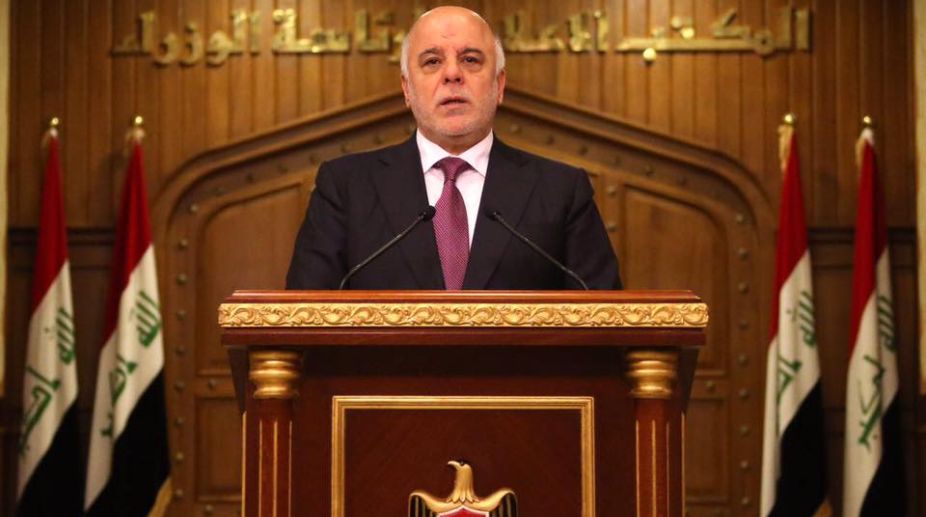Iraqi Prime Minister Haider al-Abadi on Tuesday said the referendum on independence of the semi-autonomous region of Kurdistan was “unconstitutional”, and rejected the Kurdish attempts to include the ethnically-mixed province of Kirkuk in the referendum.
“The referendum in Kurdistan is unconstitutional and has no legal value. It is incorrect and cannot be unilaterally approved,” Abadi said at a press conference after his weekly cabinet meeting, Xinhua reported.
Advertisement
“Iraq is stronger when we are together… The only option is dialogue until we solve all outstanding problems by cooperation,” Abadi said in the televised press conference.
The decision of the Kirkuk provincial council’s participation in the Kurdish referendum on independence is “unacceptable and a wrong decision,” Abadi added.
Earlier in the day, Kirkuk provincial council voted with majority for the participation in the referendum slated for September 25.
Altogether 26 out of the 41 council members attended the provincial council session. 24 voted in favor of the decision and two abstained, according to Ahmed al-Askari, head of the Kurdish-led Brotherhood bloc.
The vote to join the referendum was carried out upon the request of 23 Kurdish members, Askari said.
“Today is a historical day. Kirkuk is an inseparable part of Kurdistan,” he told reporters after the session.
Meanwhile, the Arab and Turkoman council members boycotted the session, as their communities in the oil-rich Kirkuk province oppose joining the Kurdistan region.
On March 28, Kirkuk’s council voted to raise the Kurdish flag alongside the Iraqi flag on the building of the provincial council despite the withdrawal of Arab and Turkoman council members, who argued that the move is a pre-decision that Kirkuk is part of Kurdistan.
Four days later, the Iraqi parliament rejected the decision of Kirkuk’s provincial council, after 186 lawmakers of the 328-seat parliament voted in favor of hanging only the Iraqi flag on Kirkuk’s buildings.
Disagreements between Baghdad and the Kurdish regional government have been intense for years, as the ethnic Kurds consider the northern oil-rich province of Kirkuk and parts of Nineveh, Diyala and Salahudin as “disputed areas” and seek to incorporate them into the Kurdish region, which has been fiercely opposed by Arabs and Turkomans as well as the Baghdad government.
On June 7, Kurdish leader Masoud Barzani announced his intention to hold a referendum on the independence of the Kurdish region from Iraq on Sept. 25, a step which has been criticized by Baghdad and neighboring Turkey and Iran, which also own sizeable Kurdish minorities.
The referendum is viewed by some regional and international officials as a threat to both Iraqi and regional security, which puts Barzani under heavy pressure of postponement.









